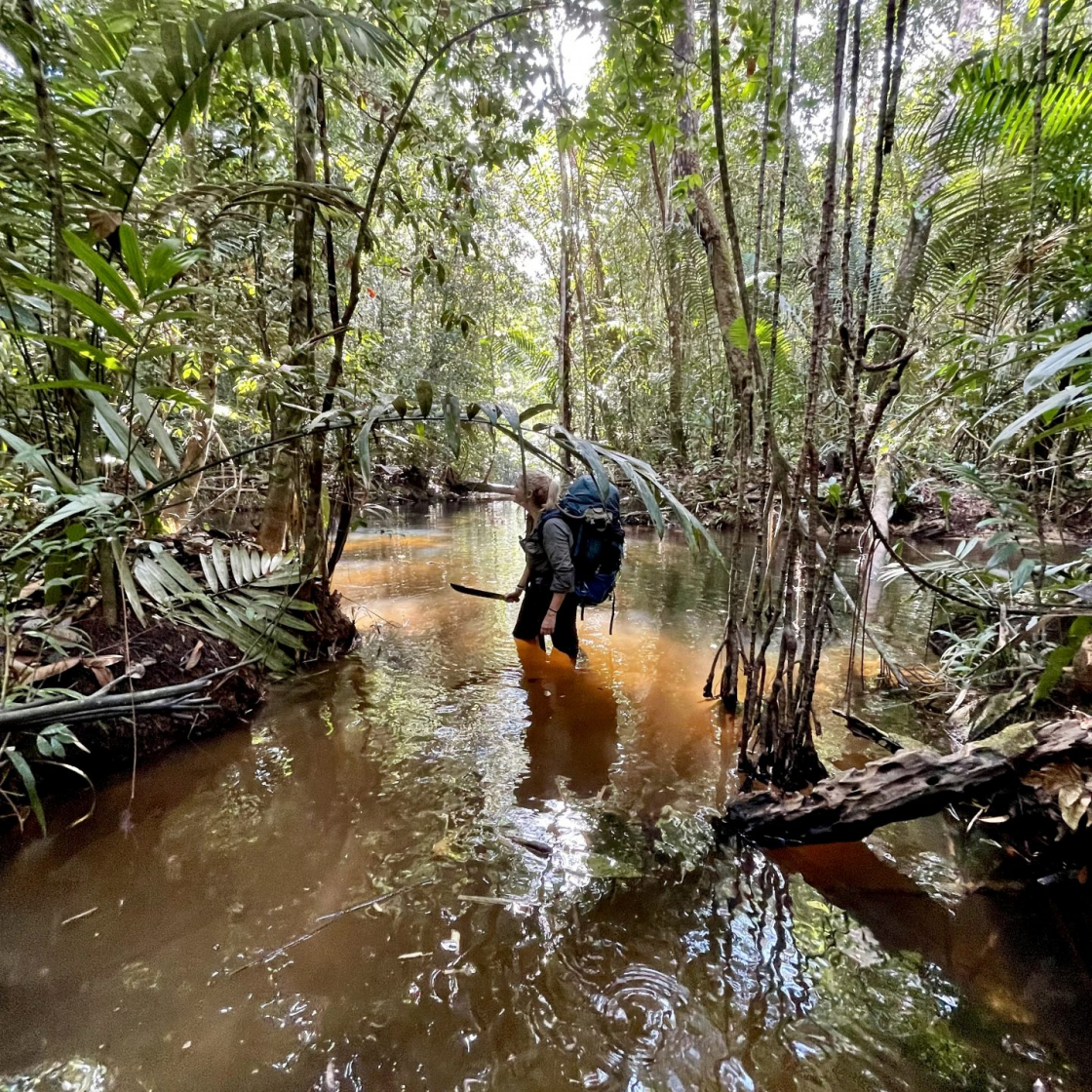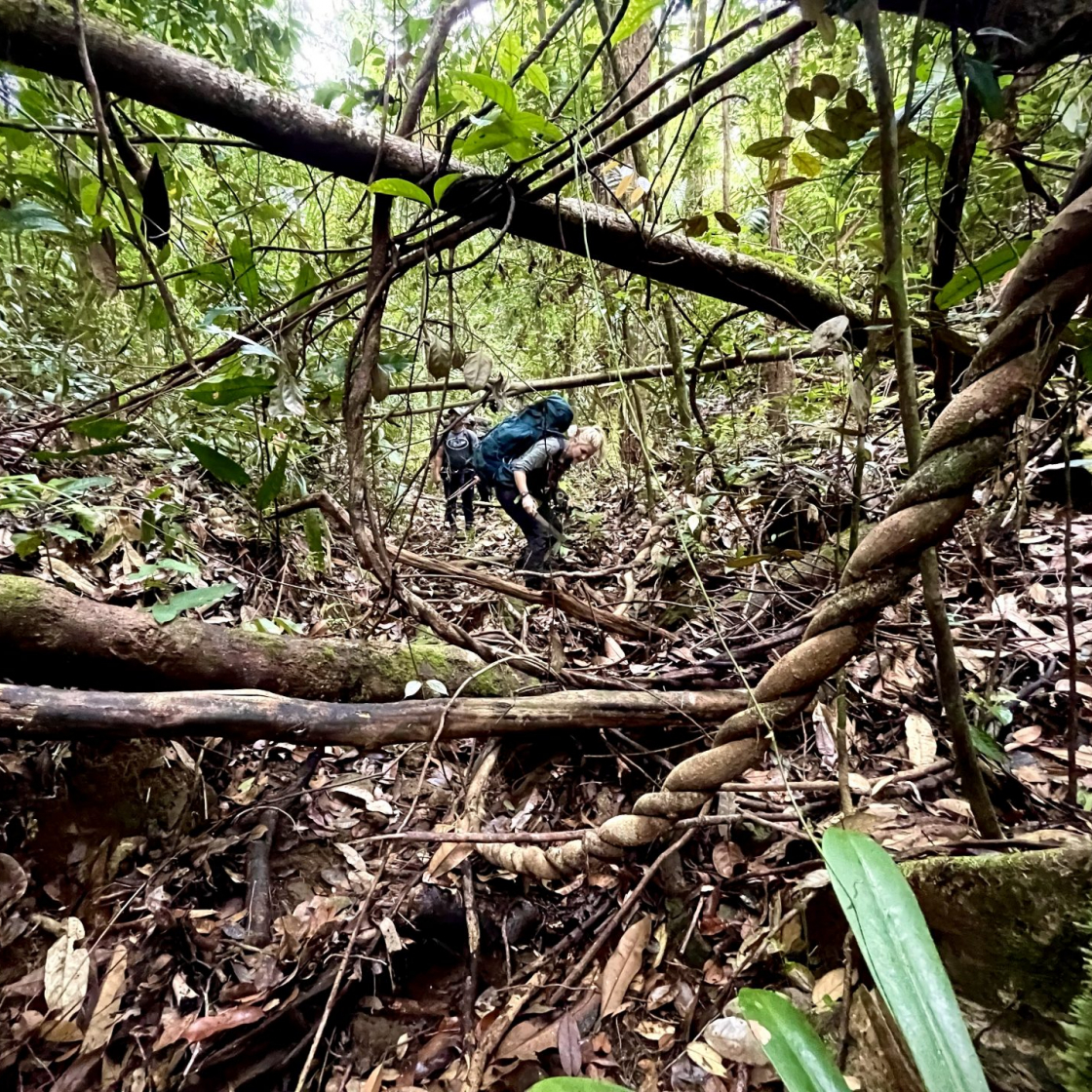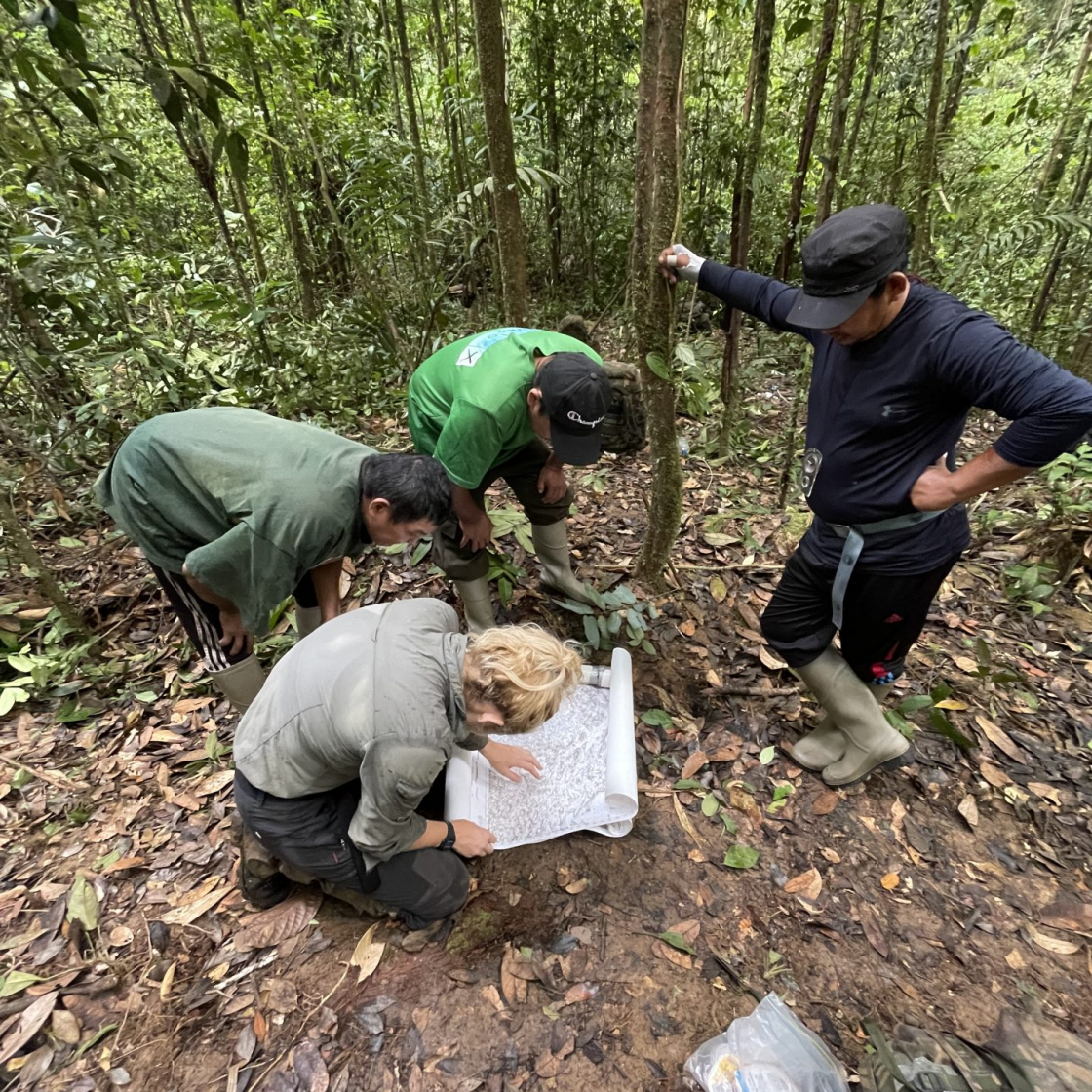Want to improve your mental resilience? Stylist sat down with British explorer Lucy Shepherd to find out how she stays mentally strong during her daring expeditions.
Lucy Shepherd’s life is a little different from that of your average 29-year-old. If you take a look at her Instagram page, you’ll see what we’re talking about – alongside shots of her and her dogs enjoying life in the UK, Shepherd’s page is full of pictures of her on adventures around the world, from the northern region of Finland to the depths of the Amazon rainforest.
But this adventurous side of Shepherd’s life isn’t just a hobby – it’s actually her full-time job. In September last year, Shepherd gave up her work in TV to make “explorer” her official job title.
And just a couple of weeks later, she headed out on an almost two-month expedition through an uncharted region of the Amazon rainforest in Guyana.
You may also like
Amazon rainforest fires: as deforestation in the region worsens, meet the women fighting to save it
For most people, the idea of spending two months in the rainforest – with no direct connection to the outside world – sounds pretty damn scary. But while Shepherd certainly had her reservations before she started the trip, its difficulty was what drew her in.
“I’ve been going on trips for 10 years, and I love it – I think being on an expedition allows you to see your own potential,” Shepherd tells Stylist.
“It doesn’t take much to see what you’re capable of. And I think once you’ve tasted that, it’s quite addictive.”
Loving something doesn’t make it any easier, however, and Shepherd has come up against her fair share of challenges over the years; on her most recent expedition, her team came face-to-face with venomous snakes and ran out of food on more than one occasion.
“The problem with jungles – especially uncharted jungles – is that you just don’t know what you’re going to run into. Things act differently there – the animals behave differently – and we had some horribly close calls.
“For example, we encountered 1,000s of bushmaster snakes, which are these huge, 10-foot long, very camouflaged snakes. If one of them gets you, it’s absolutely game over.”

Shepherd continues: “Also, because the jungle is very, very wet, any cut can become infected. We weren’t seeing sunlight for weeks either (I think the longest period without sunlight was 17 days) so underneath your wet clothes inside your wet boots, everything’s rotting.
“That’s on top of the fact that you’re literally on your hands and knees a lot of the time too – things like bamboo are really, really dense, and you have to cut your way through.”
Of course, Shepherd has had to develop quite a bit of mental resilience over the years to cope with challenges like those she faced on her most recent expedition – and as such, she’s become a bit of an expert when it comes to coping with periods of uncertainty and high stress.
You may also like
Struggling to cope with uncertainty? Thinking about your future self could help
One of the most important things she talks about is developing an “explorer mindset” – an approach which requires her to stay curious, adopt an optimistic approach and be flexible with her plans.
But, as Shepherd points out, this mindset isn’t just beneficial for getting through long expeditions – it’s also a useful tool for people who want to develop their day-to-day resilience.
So, to give you the tools you need to develop your own mental resilience, Stylist asked Shepherd to share her top tips for adopting an explorer mindset. Here’s what she had to say.
Have a plan – but prepare to be flexible

Having a plan to overcome the challenge in front of you is certainly a good idea, but you shouldn’t let your plan get in the way of your instincts, either.
“If you’re worried about or struggling with something, try to make a list of the things you might need to get through the situation in front of you and have a plan – because everyone loves a plan,” Shepherd says.
“Be ready to be flexible about it, however. It’s the exact same with expeditions – it’s important to make a plan, but nothing ever goes completely to plan, so you need to be open to changing it in a split second.”
Embrace the unknown
One of the key aspects of adopting an explorer mindset is embracing the unknown. It’s only natural to be afraid of uncertainty – but by consciously changing the way you think about life’s challenges, you can transform how you feel, too.
“Embracing the unknown is all about acknowledging the positives and opportunities that might come out of a scary or challenging experience,” Shepherd explains. “As humans, we’re curious beings, and we should try to embrace that.”
You may also like
Why uncertainty isn’t always a bad thing (and how to embrace it)
She continues: “For example, when I was in the jungle and I was looking at the map at the end of our first week and trying to estimate how far we’d gone, I realised we’d only gone like two kilometres a day, and we had got so much ahead of us and it just felt so much, and I was like, ‘Have I bitten off more than I can chew?’ It was really worrying to try and take control of that.
“But as soon as I decided there was no point in wasting that energy and tried to think of the exciting things that might come out of the uncertainty – like the challenge of getting through dense forest, or how good finishing would feel – I was able to embrace that.”
Be aware of the messages you’re sending yourself

As well as making a conscious effort to focus on the good sides of uncertainty, monitoring the messages you’re sending yourself can help to make you more resilient.
“Even when things get really scary and intimidating, I make sure never to let the words ‘I can’t do this’ enter my mind,” Shepherd says. “I think as soon as you start to say that to yourself, it’s a slippery slope.
“It starts to affect everything, because it makes you start doubting yourself, and then you can talk yourself out of anything.”
Images: Michael McDonald
Lead image design: Molly Saunders
Source: Read Full Article